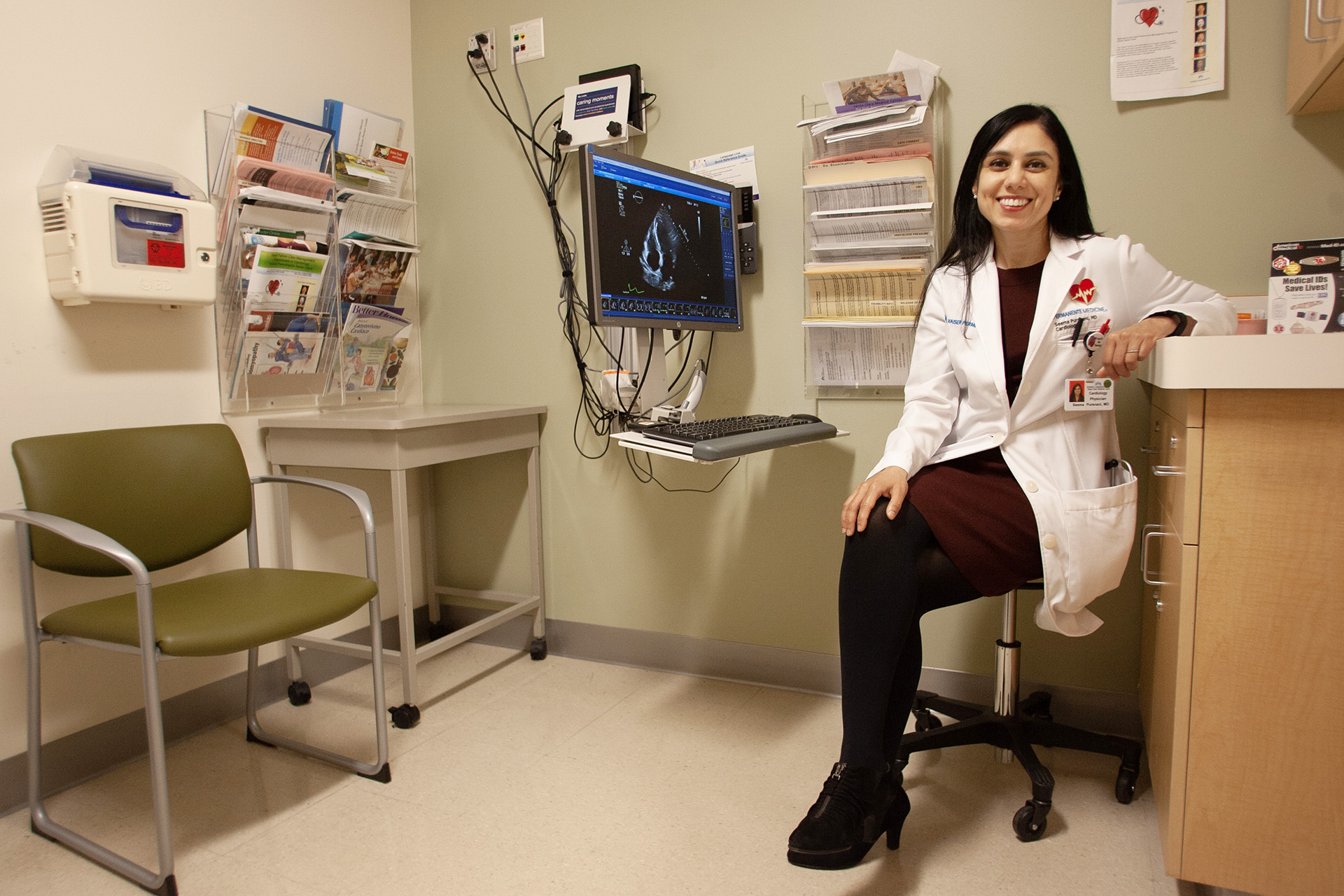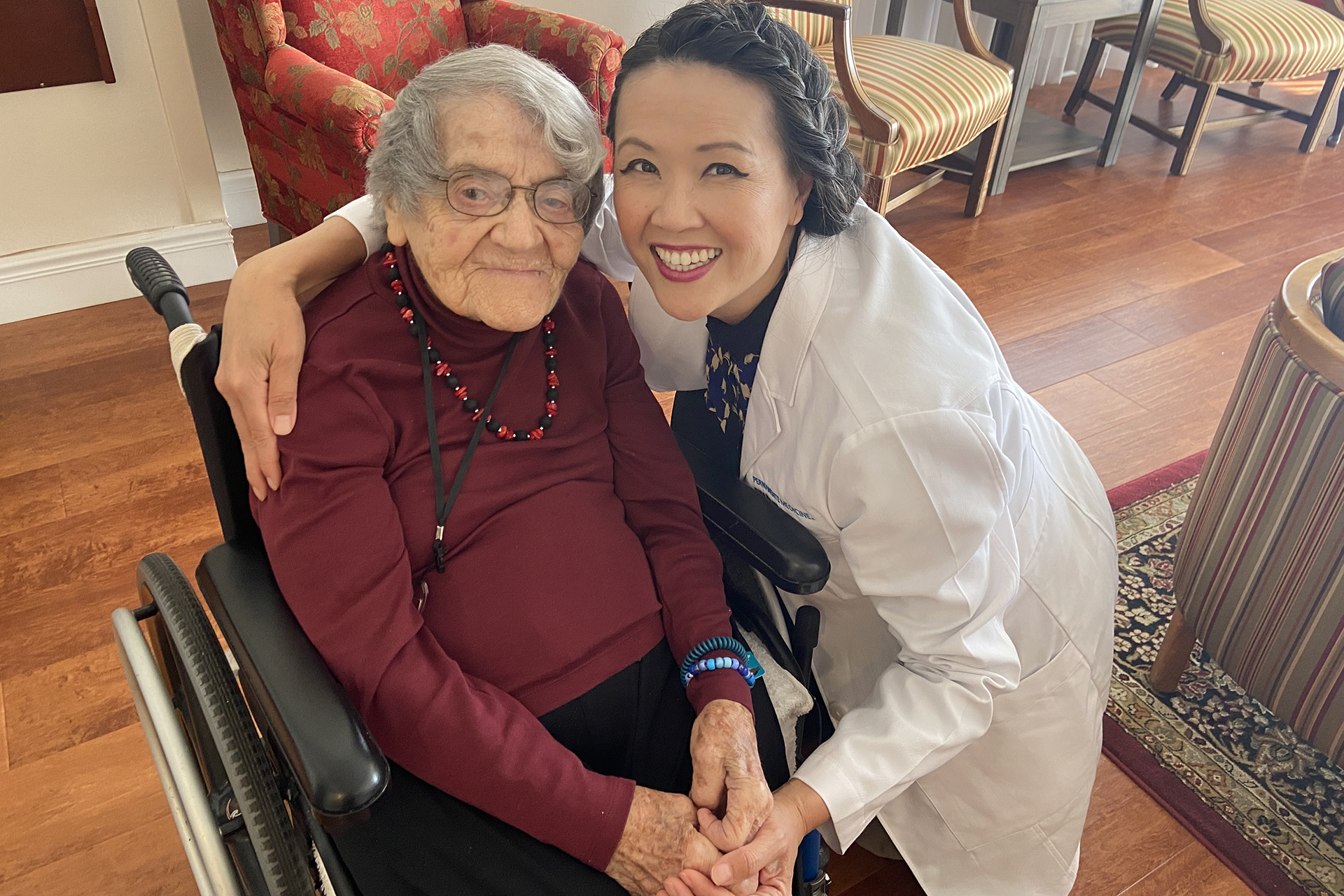Heart disease is the leading cause of death for men and women from most racial and ethnic groups in the United States, according to the Centers for Disease Control and Prevention. About 1 in every 4 male deaths a year and 1 in every 5 female deaths is from heart disease.
Kaiser Permanente Santa Clara cardiologist Seema Pursnani, MD, explains 5 ways to reduce the risk.
Manage high blood pressure
Having high blood pressure can increase the risk of heart attack, stroke, kidney damage, and vision loss, to name a few. Ideally, blood pressure should be less than 130/80 and in some higher-risk patients less than 120/80. All adults should have their blood pressure checked beginning at age 18.
When the pressure in our arteries is high, not enough blood flows to vital organs and they have to work even harder to compensate for the reduced blood flow.
Your primary care doctor will assess your blood pressure at a regular checkup. If you’ve had high or borderline high readings, you should have it checked at least once a year.
Usually, the first line of treatment for high blood pressure is lifestyle changes such as getting regular aerobic exercise and reducing sodium intake. If it remains high, a physician may prescribe medicine to help you manage it.
Control cholesterol
Cholesterol can increase inflammation and plaque buildup in your arteries, and that can increase the risk of heart attack and stroke.
As plaque builds up in the wall of the artery, the effects are similar to high blood pressure in that it can make it harder to get blood where you need it.
Reducing saturated fat intake can be helpful in lowering cholesterol. Most adults should have a cholesterol check beginning at age 20. How often it is checked will depend on the values. For people age 40 to 79, the standard is every 5 years. Others may need it checked at least every year.

Test for diabetes
Diabetes is the biggest risk factor for heart disease in men and women. Diabetes testing usually starts at age 40, but if you have risk factors, such as high blood pressure, a family history of the disease, or being overweight, or if you have had diabetes during pregnancy, then talk with your doctor about earlier screening with a blood test.
The hemoglobin A1c test will tell what your blood sugar levels have been over the last 3 months. If you have an elevated hemoglobin A1c, you have prediabetes or diabetes.
Eat healthy foods and exercise
The best diet from a heart standpoint is a whole-food, plant-based diet that emphasizes whole grains, fresh fruits, and vegetables. It’s also a diet without processed food and not dependent on animal products. It has been shown to reduce inflammation in the body and cause regression of coronary artery disease.
Exercising for 30 minutes a day is also vitally important.
Reduce chronic stress
We know that heart disease is the result of inflammation. Stress can cause inflammation, so reducing it through a regular mindfulness or meditation practice or by using guided help such as the Calm app, which is available to Kaiser Permanente members at no cost to them, can be helpful in reducing heart disease. Unfortunately, none of us can eliminate stress, but we can manage our body’s response to it.





This Post Has One Comment
Thank you for the helpful info.